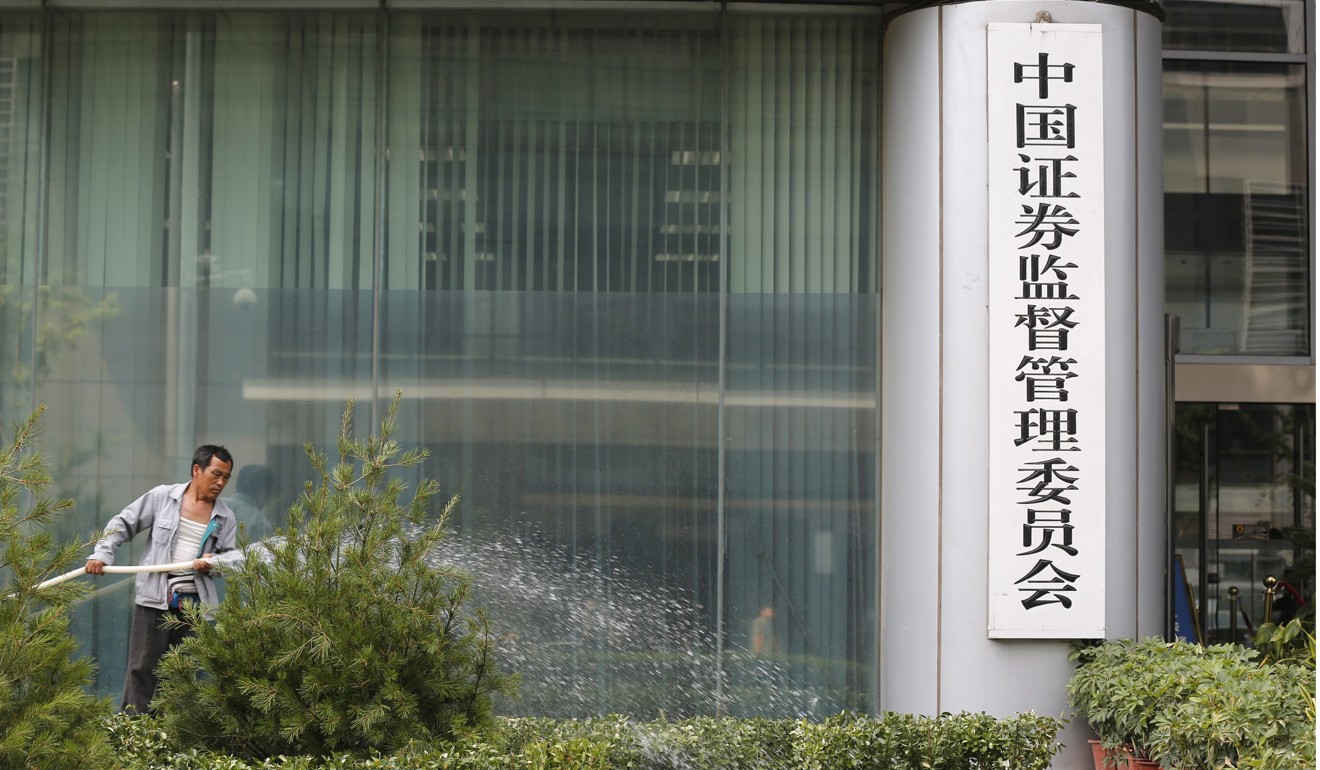
Update | Small-caps lead declines in Chinese stocks on concern regulatory surveillance will escalate
Mainland’s ChiNext index falls to a four-month low as the CSRC steps up clampdown on scams related to bonus share payouts, while Hong Kong stocks fall to lowest level in four weeks
China’s stocks retreated on Tuesday, with a gauge of smaller growth companies dropping to a four-month low, on concern that the regulator will intensify the scrutiny of speculation on small-caps.
The ChiNext index of start-ups slumped 2.2 per cent, or 39.18 points, to 1,758.59 in Shenzhen, the lowest close since August 11. The benchmark Shanghai Composite Index slipped 0.2 per cent to 3,303.68, with more than six stocks falling for each that rose on the gauge.
Hong Kong’s equities fell to a four-week low, following cues from an overnight rout in technology stocks in the US. The Hang Seng Index lost 1 per cent on Tuesday.
Concerns about increased crackdown on market excesses have been mounting after the China Securities Regulatory Commission said at a weekly briefing last Friday that it would step up field inspection of listed companies that propose exceptionally high amounts of bonus stocks. Bonus share payouts were used by some companies as a way to cover insider selling from executives and manipulate stock prices, the CSRC said.
Huali Industries tumbled more than 6 per cent among smaller companies on Tuesday as the maker of interior decoration material revised its proposal by cutting the number of bonus stocks that will be paid to shareholders, responding to questioning from the Shanghai Stock Exchange.
“We are seeing some flight of capital from small-caps after the window guidance from the regulators,” said Wu Kan, a fund manager at Shanshan Finance in Shanghai. “It’s without doubt that the whole regulatory oversight is being maintained at a high-pressure mode.”
Huali plunged 6.6 per cent to 45.93 yuan after the company said it would pay four bonus stocks for every 10 held and cash dividends, compared with the previous proposal of a payout of 10 bonus shares. The revision came after the Shanghai exchange queried the company’s motivation for giving out bonus shares, pointing out that its declining profit would not justify the move.
Zhejiang Rongsheng Environmental Protection Paper tumbled 7 per cent to 60.53 yuan after the company said it would reduce the payout of bonus shares to four from 21 for every 10 shares held.

It’s without doubt that the whole regulatory oversight is being maintained at a high-pressure mode
Out of the ChiNext gauge’s 100 constituents, 85 fell and only six rose on Tuesday. Thunder Software Technology and Chengdu Corpro Technology were among the biggest decliners that dropped at least 8.2 per cent for the day.
In Hong Kong, the Hang Seng Index lost 295.48 points to 28,842.80, the lowest close since November 6. The Hang Seng China Enterprises Index, or the H-share gauge, lost 0.3 per cent.
The wave of selling in technology stocks in US markets – a result of investors rotating out of the valuation-at-a-premium sector to lock in profits – spilt over to Hong Kong, sending shares of Tencent Holdings down 3.2 cent to HK$376, accounting for about a third of the drop in the Hang Seng.
“Tencent fell because the technology stocks fell in the US, so it is a follow on,” said Francis Lun, chief executive officer of Geo Securities.
Other technology companies also fell. China Literature, the online reading unit spun out by Tencent that was listed in November, dropped 1.9 per cent to HK$86.10. Sunny Optical Technology, China’s largest manufacturer of smartphone camera modules and lenses, shed 5.7 per cent to HK$124.50.


